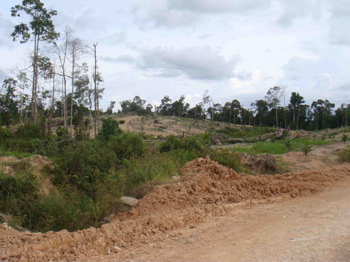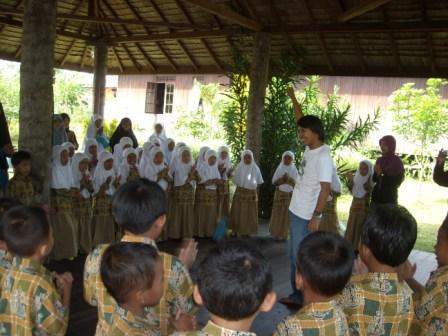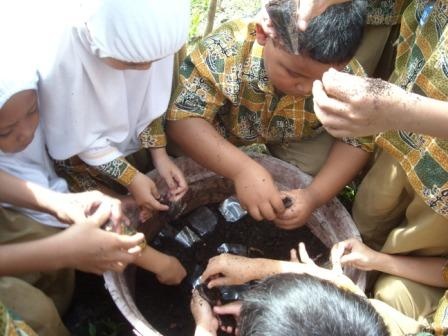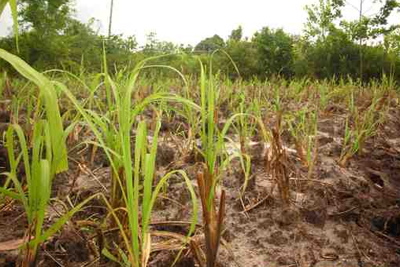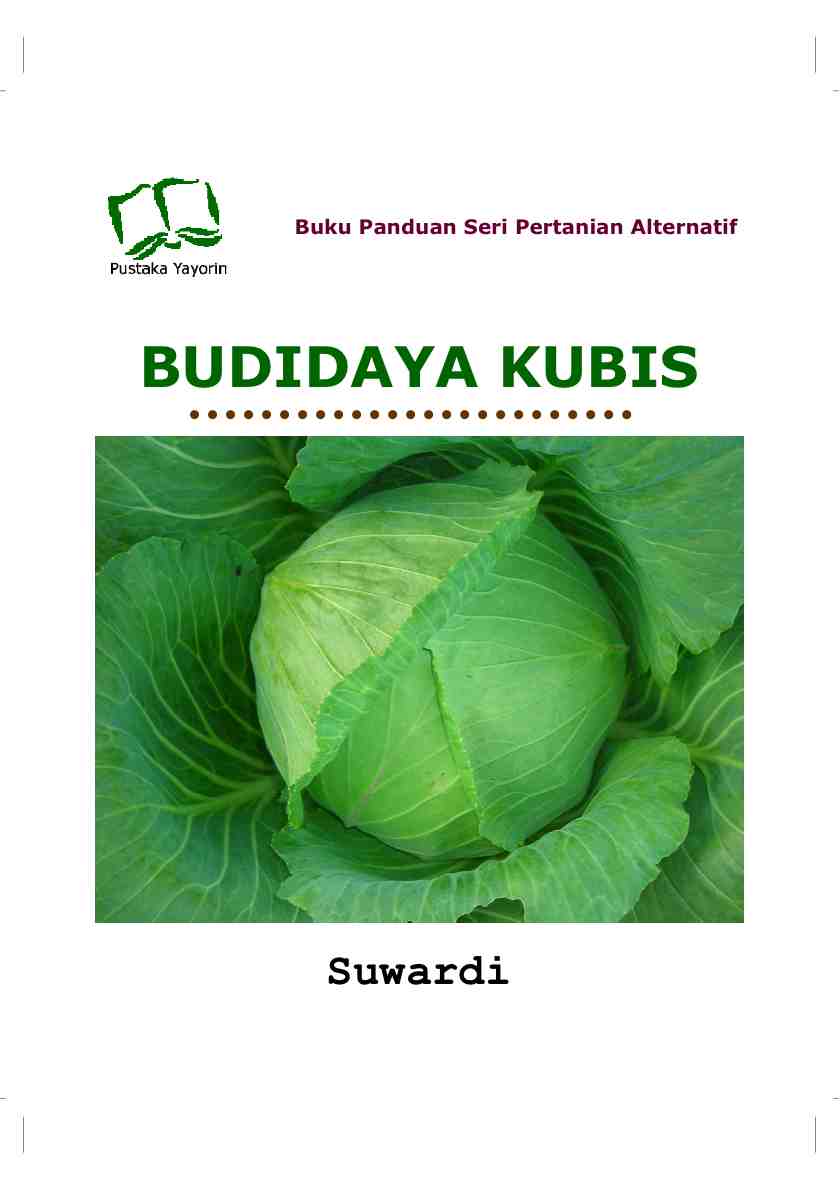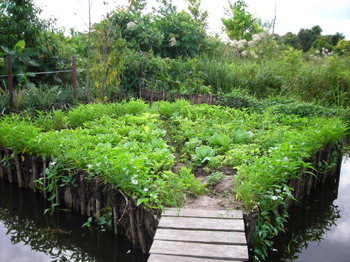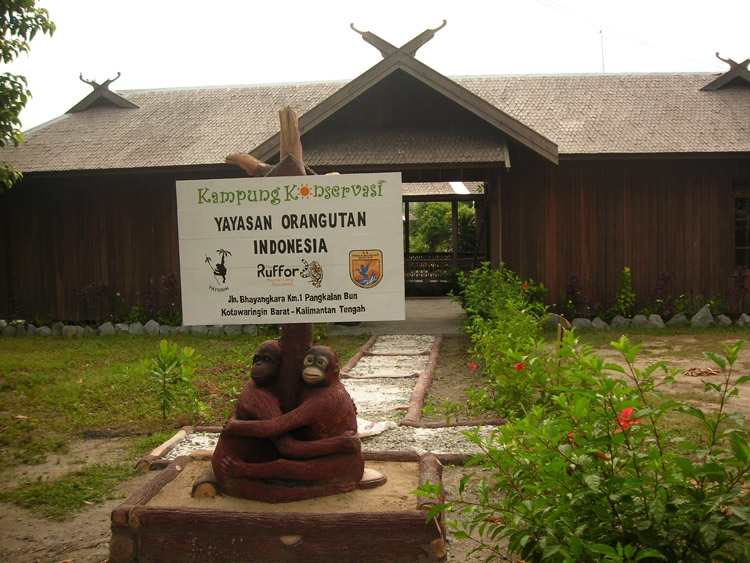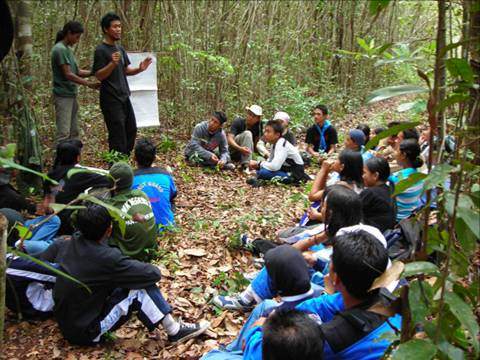Its 6:30 on the 3rd December and we’re on our morning commute to work. Our boat is cutting its way through the rapids of the river and we’re on the look out for crocodiles lurking on the banks.
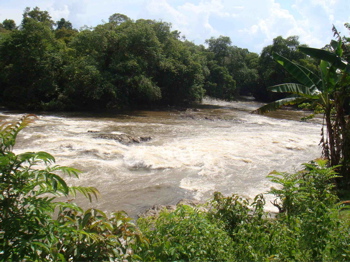
Morning commute - the rapid at Nanga Matu the starting point for the morning commute to work!
On the river - mist over the Belantikan river on the early morning journey to work.
On this early morning a mist still hangs over the top of the forest-covered hills on either side of the river. All around us the forest still thrives, providing sufficient sustenance for both the huge range of wildlife and the small village communities that have made this beautiful corner of Kalimantan their home. We are on the way to teach in one of these villages, Kahingai, and it’s the most incredible commute to work I could ever imagine, but sad too to think what this might be like in five years time if the fate of the forest here follows much of the rest of Kalimantan.
Our journey up to Belantikan from Pangkalan Bun, one month ago, showed us what the future might hold for the forest here. Passing us on the road heading back to town were the biggest trees I’ve ever seen, all stacked up two by two on the trucks that filed past in a long procession. Further piles of enormous dead trunks, neatly stripped of all unnecessary leaves and branches, lay by the side of the road awaiting transportation.
Logging concession - destruction of the forest on the road to Belantikan
Rampant logging was only part of the problem; most of the journey out was through oil palm plantations, with the neat ranks of oil palm advancing into the former territory of the wild forest. The new plantation is a parody of the original forest, providing no home to the orangutan or other animals, and when the planters have finished they leave a land degraded that can never become forest again. If Borneo was once a Garden of Eden then what has been done to the trees here makes stealing a bit of fruit look very innocent indeed.
Oil Palm Plantations on the way to Belantikan (Photo: Orangutan Foundation)
We were fortunate enough on our journey up to Belantikan to have an unscheduled overnight stop off in a richer part of the jungle when our van, swerving to avoid a fallen tree, got stuck in the mud.
Our accomodation for a night in the jungle, a van stuck in a ditch.
The accommodation, on the back seat of a van sunken on one side into a deep muddy ditch, wasn’t the most comfortable, but it was amazing to wake up with the dawn to a chorus of gibbons in the trees overhead. We were also lucky enough to see a deer flash across our path to disappear into the trees on the other side of the road. We were still in the territory of the logging concession that envelops Belantikan, but in a relatively untouched part of the forest. A well-policed logging concession can actually be considered the lesser of three evils, and there are fears of what might happen to Belantikan when the concession expires in 2012 if the twin terrors of illegal logging and palm oil move in en masse. It raises the question, what will be left when the children we are teaching today have grown up?



